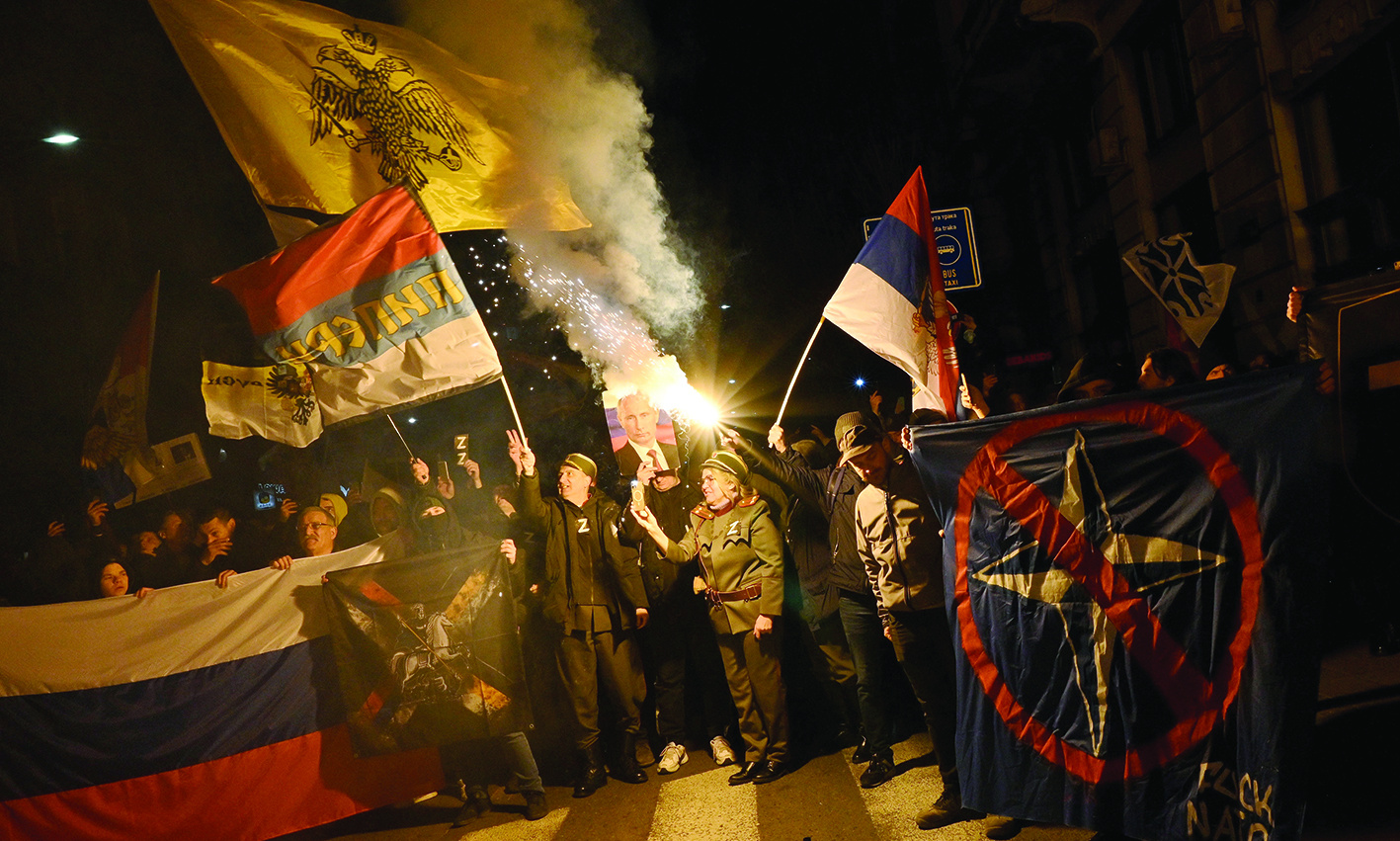BELGRADE: Amid the thunder of pro-Russian slogans and anti-NATO chants in the streets of Serbia's capital Belgrade, Marko Vezmar was unrepentant in his support for President Vladimir Putin and the invasion of Ukraine. "This had to be done," Vezmar told AFP, while wearing a shirt emblazoned with a portrait of Putin wearing aviators and armed with a rifle. "Evil reached Russian borders and if it wasn't for [the invasion] there would have been a world war," he added, as the crowd yelled "Serbs-Russians, brothers forever". Days later, a pro-Ukraine demonstration in the capital Belgrade attracted a much smaller number of participants.
"I feel ashamed that my country did not join the rest of the world that condemned the invasion," said Dubravka Stojanovic, a 59-year-old historian. As hundreds of thousands have rallied across the globe in solidarity with Ukraine, Serbia has emerged as a rare outliner with many in the country openly supporting Putin and his decision to invade the former Soviet republic. For centuries, Serbia and Russia have been united by deep fraternal ties -- from their Slavic and Orthodox heritage to their steadfast alliances during the World Wars of the 20th century. Moscow's influence in Serbia remains ubiquitous, with Russian oil and gas providing the backbone of the country's energy sector.
Russian vaccine tourists have poured into the country amid the pandemic, while T-shirts featuring Putin's face are widely available at kiosks around Belgrade. "In the past couple of weeks, these are by far the best selling shirts," said the operator of one kiosk in the capital, who asked not to be named. And now with Russia again on the war footing, many Serbians see no reason to side against their long-time patron.
'Rock star'
The outpouring of support for the Russian invasion has come just weeks ahead of a general election in Serbia, presenting the incumbent President Aleksandar Vucic with a vexing dilemma. For weeks, pro-government media outlets backed by Vucic have echoed the fierce messages coming from the Kremlin. "Pro-government media... made Putin a rock star in Serbia," Vuk Vuksanovic, a Belgrade-based analyst, told AFP. But with Serbia an aspiring European Union member, Vucic has tried to walk back some of the more chest-beating rhetoric in recent days, while also trying not to upset his pro-Russian base of supporters.
Following the invasion, Serbia officially condemned Russia's actions at the United Nations but Vucic has vowed to refrain from sanctioning Moscow at home. "I have aged 10 years in the past three days," said Vucic during a national broadcast. "Our country has a position and as long as we can, we will preserve it." Turning his back on Russia now could have dire consequences for him at the ballot box in early April, having spent years touting the importance of Serbia's ideological partnership with Putin. "What [the government] fears the most is the internal chaos that would erupt if Serbia chose a side," Vuksanovic told AFP. "They are scared of alienating not only pro-Russian parts of the constituency, but also the church, the army and intelligence."
'No choice'
Vucic has managed a delicate balancing act for years. The Serbian president has juggled Serbia's relations with the eastern and western powers, paving the way for substantial financial aid from the European Union as well as major business deals with China and Russia. But Russia has remained unparallelled as an ally thanks to its ironclad backing of Serbia's claim over the breakaway province of Kosovo and its blocking of any formal recognition of the territory's independence at the UN.
In a 2021 survey by the Institute for European Affairs, 83 percent of Serbian respondents saw Moscow as a "friend". Putin has been named an honorary citizen in about a dozen Serbian cities. "Serbia grows attached to Moscow by the day," said Srecko Djukic, Serbia's former ambassador to Belarus. "Belgrade had no choice but to not impose sanctions," he added. Serbians also share Russia's deep-seated animosity toward NATO. They have not forgotten the alliance's bombing raids during the bloody breakup of Yugoslavia in the 1990s.
During the pro-Russia rally in Belgrade last week, demonstrators waved signs denouncing the alliance and rattled off anti-NATO slogans as they marched through the streets, lighting flares and holding up Orthodox icons. "Ukraine is being liberated from neo-Nazis," said Nikola Babic, a 22-year-old security guard. "Russians -- our brothers -- are liberating the country, and hopefully the world." - AFP











